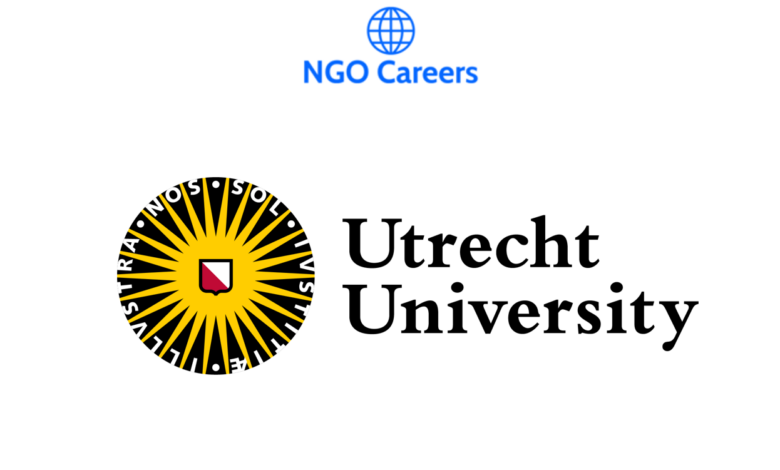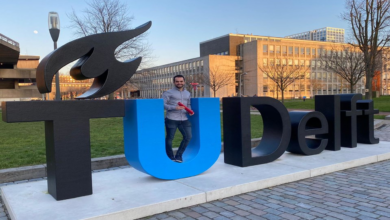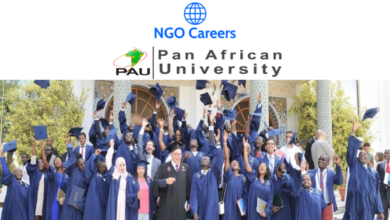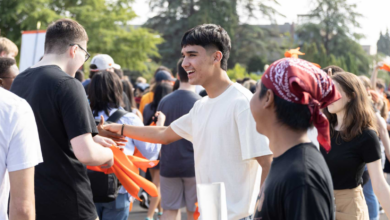Fully-funded PhD position on ‘The relationship between linguistic factors that affect text comprehension and processing fluency and the acceptance of (in)accurate information’ – Utrecht University, Netherlands

Fully-funded PhD position on ‘The relationship between linguistic factors that affect text comprehension and processing fluency and the acceptance of (in)accurate information’ – Utrecht University, Netherlands
Due Date: 11 July 2023
Job description: Fully-funded PhD position on ‘The relationship between linguistic factors that affect text comprehension and processing fluency and the acceptance of (in)accurate information’ – Utrecht University, Netherlands
Are you self-motivated, curious and interested in research? Are you excited to work on a project that is of theoretical and societal significance? Are you interested in researching the linguistic factors that make textual information credible? Consider joining the Language and Communication research group as a PhD student to conduct cutting-edge research at the intersection of text comprehension, language technology and persuasion research.
We are seeking to hire a highly motivated, driven, and talented PhD student to carry out this PhD project in a period of four years. The PhD project is funded by a grant awarded to dr. Marloes van Moort, dr. Karin Fikkers, Prof.dr. Hans Hoeken and Prof.dr. Antal van den Bosch, and will be carried out at the Institute for Language Sciences (ILS), Utrecht University. You will work in an interdisciplinary team with researchers from the fields of cognitive psychology, text comprehension, language technology and persuasion research.
As a PhD candidate (“aio”) you can devote 10% of your four-year appointment to non-research related tasks, such as teaching. Note that, given the limited amount of teaching, it is not possible to obtain a University Teaching Qualification (‘BKO’) during your PhD.
Project description:
In today’s information society people are faced with an avalanche of messages, often expressing opposing views. In addition, spreading false or misleading information online has become increasingly prevalent (e.g., disinformation or fake news). Thus, it is crucial that readers are able to distinguish true from false, and meaningful information from misinformation.
In this PhD project you will focus on whether and to what extent linguistic factors influence the credibility of (textual) information. Specifically, you will investigate to what extent being able to process a text smoothly (i.e., processing fluency) affects whether readers find information credible, regardless of whether the message’s content is true or not. In these investigations you will take into account the latest developments in language technology by examining the possible role of Large Language Models such as ChatGPT in generating (in)correct information. Texts produced by such LLMs provide an interesting case, as the way these programmes are designed allows them to generate texts that are often very easy to process. They produce texts by “choosing” the word that is most likely at a certain position. Precisely because that word is likely, readers will also expect it and the processing process will most likely be smoother.
This PhD project consists of two parts.
- The first (language technological) part of the project builds on previous (language technological) research into the linguistic determinants of comprehensibility and focusses on identifying linguistic features that affect the ease of processing or the degree of acceptance of correct and incorrect information.
- In the second, empirical-experimental part, you will conduct a series of experiments to test to what extent the linguistic features identified in part one actually influence credibility and therefore the acceptance of a message, and to what extent that potential effect is achieved through ease of processing.
You will investigate these processes for both correct and incorrect information and for texts written by humans and text generated by tools such as ChatGPT (or other language models) to test whether the same processes play a role, and if so, whether we utilize these processes in correcting/rectifying misconceptions in readers.
Danish Government Scholarships | University of Copenhagen – Fully Funded – APPLY NOW
If you are passionate about exploring the complex interactions between linguistic factors and text credibility then we encourage you to apply for this exciting opportunity. You will have the chance to develop your research skills, work with a dynamic team, and make a valuable contribution to the field of text research. Also, there will be plenty of opportunities to add your own twist to the research project.
This PhD position is part of the interdisciplinary UU PhD programme of the Faculty of Humanities, funded by the administrative agreement (‘bestuursakkoord’) between the Ministry of OCW and the universities.
Qualifications: Fully-funded PhD position on ‘The relationship between linguistic factors that affect text comprehension and processing fluency and the acceptance of (in)accurate information’ – Utrecht University, Netherlands
General requirements:
- A (research) MA degree (or equivalent) in Communication and Information Science, Psychology, Educational Science, (Computational) Linguistics, Cognitive science, Artificial Intelligence or a related discipline in hand by the starting date;
- Demonstrable knowledge in at least one of the following areas: text comprehension, language technology, persuasion, fake news, misinformation;
- High proficiency in academic English and high proficiency in Dutch;
- Ability to work both as an independent researcher and as a team member with an empirical research focus and knowledge of, or the willingness to learn, specific quantitative and qualitative research methods, including (but not limited to) corpus analyses and experiments;
- Affinity with interdisciplinary research and ability to meet deadlines;
- Strong organizational, social and communication skills;
- Experience with quantitative analysis using statistical software (e.g., Stata, R, Python, SPSS, JASP);
- It would be an advantage to have experience with corpus analysis, programming (e.g. Python, Psychopy, E-prime) and/or Large Language Models (e.g. Huggingface).
Offer
You will be offered a temporary position (1.0 FTE), initially for one year with an extension to a total of four years upon a successful assessment in the first year, and with the specific intent that it results in a doctorate within this period. The gross salary ranges between €2541 in the first year and €.3247 in the fourth year of employment (scale P according to the Collective Labour Agreement Dutch Universities) per month for a full-time employment. Salaries are supplemented with a holiday bonus of 8% and a year-end bonus of 8.3% per year.
About the organisation
. A better future for everyone. This ambition motivates our scientists in executing their leading research and inspiring teaching. At Utrecht University
The various disciplines collaborate intensively towards major strategic themes. Our focus is on Dynamics of Youth, Institutions for Open Societies, Life Sciences and Sustainability. You can watch the Utrecht University Campus Tour to get an impression of our university.
The Faculty of Humanities has around 7,000 students and 1,100 staff members. It comprises four knowledge domains: Philosophy and Religious Studies, History and Art History, Media and Culture Studies, and Languages, Literature and Communication. With its research and education in these fields, the Faculty aims to contribute to a better understanding of the Netherlands and Europe in a rapidly changing social and cultural context. The enthusiastic and committed colleagues and the excellent amenities in the historical city centre of Utrecht, where the faculty is located, contribute to an inspiring working environment.
The core values of the faculty for Humanities are professionalism, transparency, responsibility, connectedness and safety. The core values apply to everyone and we uphold these values in our work and in our communication with each other and with others.
The research is conducted within the Language and Communication research group in the Institute for Language Sciences (ILS). The ILS research staff comprises approximately 20 full professors, 10 postdocs and roughly 45 PhD students. The Institute for Language Sciences is part of the Department of Language, Literature and Communication in the Faculty of Humanities.
The Department of Language, Literature and Communication offers Bachelor and Master programmes in language education, intercultural communication, literary studies, linguistics, communication studies, translation, as well as in Dutch, English, German, French, Italian, Spanish and Celtic languages.
Additional information
For more information about this position, please contact Marloes van Moort (Assistant Professor and principal investigator of this project) at m.l.vanmoort@uu.nl or Maaike Schoorlemmer (Research Coordinator at ILS) via m.schoorlemmer@uu.nl.
MORE INFORMATION AND APPLICATION ON THE OFFICIAL WEBSITE




